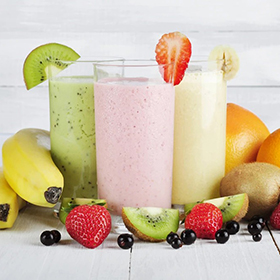
The results from this mouse study showed that lemon juice significantly inhibited alcohol-induced damage in a dose-dependent manner. Histopathological changes induced by alcohol were also remarkably improved by lemon juice treatment.
These findings suggest that lemon juice has protective effects on alcohol-induced liver injury in mice. The protective effects might be related to the antioxidant capacity of lemon juice because lemon juice showed in vitro antioxidant capacity.
Lemon is a popular fruit consumed as juice and contains high contents of vitamins and polyphenols (mainly flavonoids), such as hesperidin, eriocitrin, naringin, neohesperidin, rutin quercetin, chlorogenic acid, luteolin, and kaempferol. The in vivo and in vitro experiments have shown that lemon has various health benefits, such as anticancer effect, antimicrobial effect, lipid-lowering effect, and protective effect against cardiovascular diseases. In addition, lemon is used to treat liver ailments in tribal medicine.
Chronic alcohol consumption can generate abundant reactive oxygen species (ROS), (free radicals) and subsequently cause cellular damage. Chronic excessive alcohol consumption (more than 40–80 g/day for males and more than 20–40 g/day for females) could induce serious liver injury and could lead to several illnesses, such as gastrointestinal damage, pancreatitis, alcoholic liver disease, neurologic disorders, diabetes mellitus, and cancer. Alcoholic liver disease is a major type of chronic liver disease throughout the world and can progress to liver cirrhosis and liver cancer.
